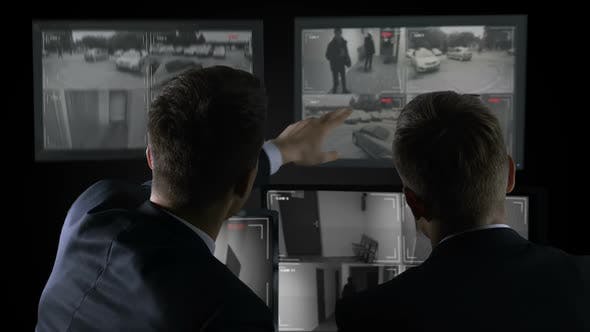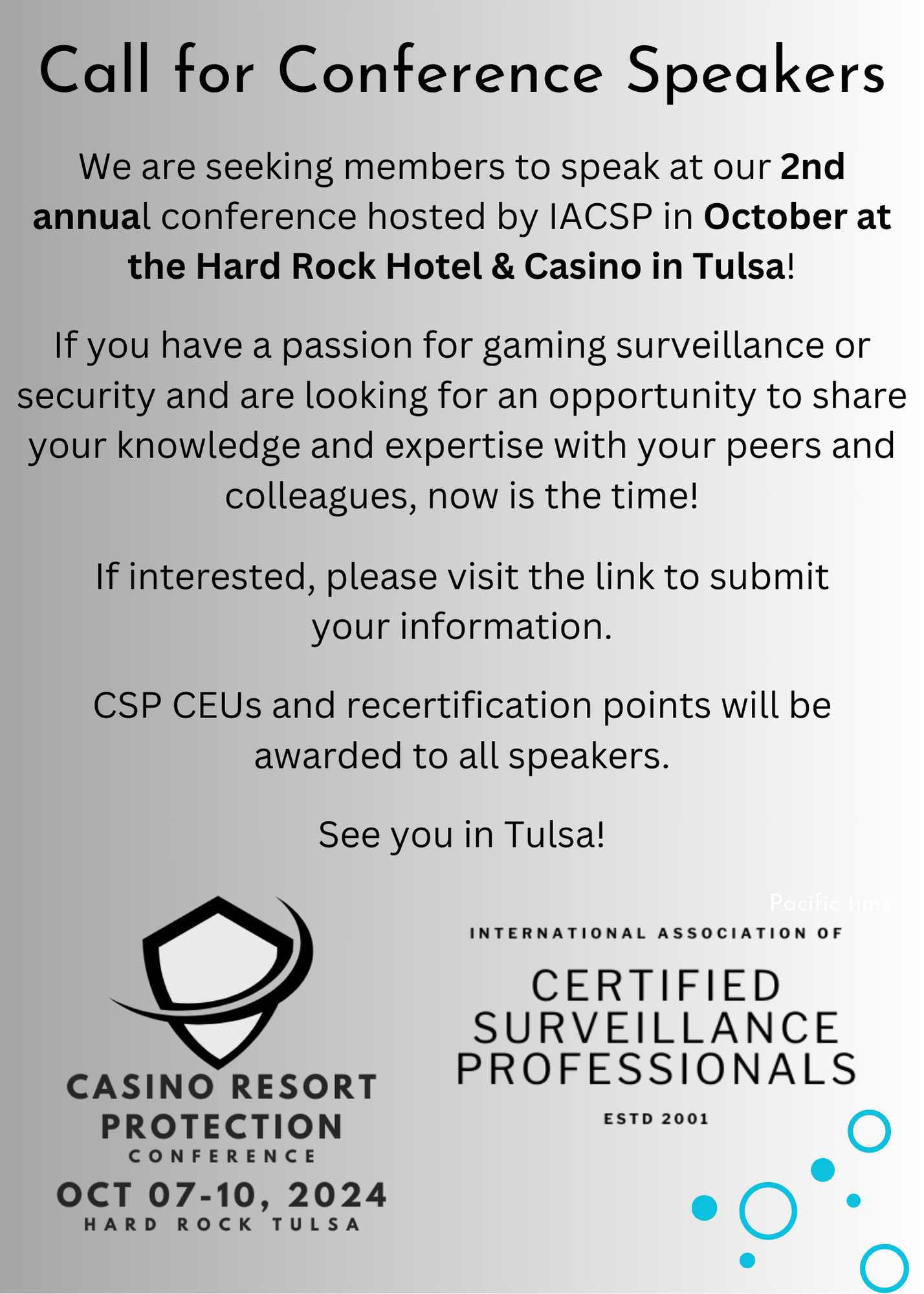A large part of a surveillance agent’s job is reviewing video to locate an incident or event such as theft, guest slip or fall, or a violation of policy by an employee. While these types of review and many others are conducted almost daily, most surveillance personnel have never received any formal training nor has there been an industry-wide best practice established for conducting reviews. This lack of training results in inefficient review as well as the poor documenting and securing of necessary evidence.
You’ve probably heard from your surveillance department the statement: “Sorry, we didn’t save that part of the video, we only save an hour before an incident.” You hear that because we don’t have a process in place to make sure we keep the right stuff.
Reviewing video for the purposes of investigation and securing video evidence, while always important, is even more serious nowadays with the criticality of events like an active shooter or cage robbery, increased litigation from guests who had an accident or who were otherwise harmed while on the property. Surveillance review must be done properly and completely to ensure that we get the whole story to include identifying those involved, how things happened, witnesses, if any, and the saving of all necessary video.
Locating and saving the necessary video is probably the most important. Surveillance has always done a great job locating an incident or issue. It is the documentation of what we’ve found, and preparing the case for use by law enforcement, for civil litigation, or even for Human Resources on the property, that we fail.
Surveillance departments typically will retain the incident itself and maybe some video before and/or after the event. This is always an important decision and should not be made lightly. It can be a lengthy process to save the video that may or may not be needed and most surveillance agents would rather save less rather than more. For example, we save the video of a guest that slipped and fell on a wet floor but we may not save how the floor became slippery. If we did go back far enough, we could and should find that either an employee spilled something and didn’t get it cleaned up, or even that it was a guest that did it. In either case, it is good information to have to properly handle a potential lawsuit. By the way, most attorneys know that surveillance doesn’t always do a thorough job of reviewing or saving video and will use it against you in court.
Surveillance cameras record a tremendous amount of information. When we are able to locate and use that information, we can go further in the protection of our property both live and for future needs. For instance, locating additional suspects in an armed robbery may take many hours of review but may end up solving the case. Determining that an employee spilled water that resulted in a guest fall allows us to approach a lawsuit differently or to settle the case saving potentially considerable expense.
I think surveillance departments are now realizing that properly reviewing video is necessary and are paying more attention to this issue.
The International Association of Certified Surveillance Professionals (IACSP) has addressed this issue with its white paper “Video Review, Investigation, and Retention in Gaming Environments.” This paper researched, written, and reviewed by surveillance professionals, as well as outside experts, puts forth a best practice for the gaming industry that will assist surveillance personnel in this critical area.
The paper outlines the process necessary for the types of reviews performed in the gaming world. From the basic review of a mispaid bet by a dealer to the review necessary for an assault of a guest; we must consider what should be reviewed and documented, defined, categorized, and explained. Proper documentation of the review listing what was and wasn’t found is stressed as an important piece of evidence. Cameras that should be included, as well as the length of time to review, is considered and recommended to assist the surveillance professional in putting together the case. Following the practices outlined in the paper allows the surveillance department to investigate an incident more effectively and retain video that vital to the case.
Surveillance professionals may obtain a copy of the paper by contacting IACSP. Properly responding to and documenting incidents helps protect your property in the present and for the future.







Leave A Comment